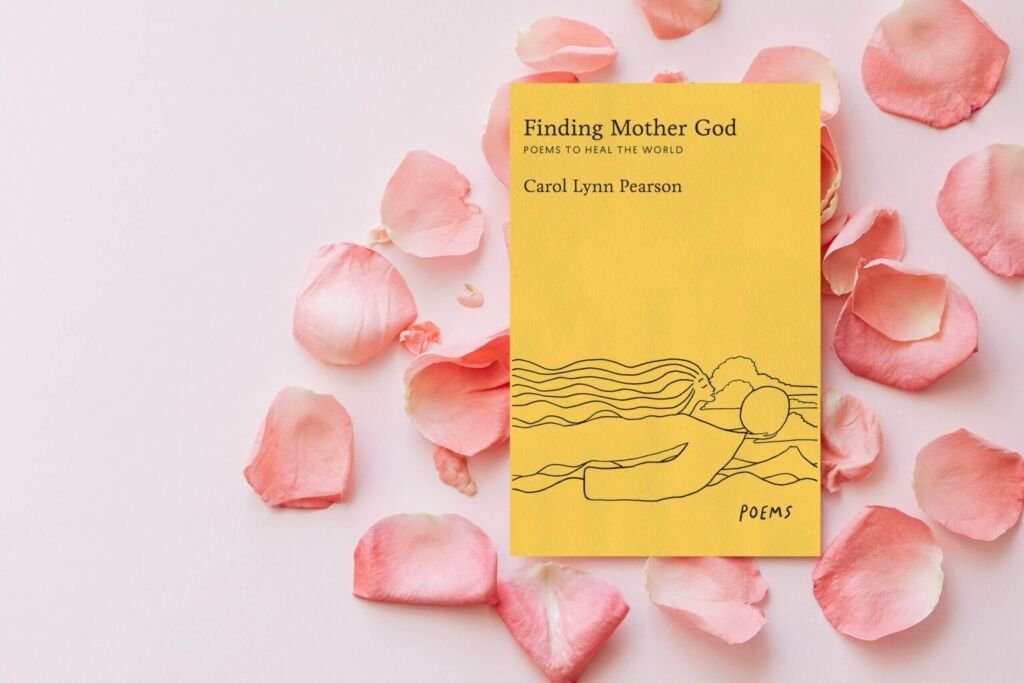Post By Charlotte Scholl Shurtz
Finding Mother God: Poems to Heal the World is the latest book of poetry by Carol Lynn Pearson. While mourning trauma that results from the absence of the feminine divine (and consequent subjugation of women), Pearson brilliantly flips traditional scripts, shifts paradigms, and centers the feminine divine. She offers a multitude of miniature stories and thought experiments, glimpses into relationships and traditions around the world with Mother God.
The title of the book makes a big promise, offering poetry to “heal the world.” And yet, after reading this book the claim doesn’t seem impossibly large. Poems at the beginning of Finding Mother God: Poems to Heal the World draw from biblical parables, mythology, and logic to show that we cannot be whole nor experience full holiness without the Mother. In the poem “Does it matter?” Pearson writes,
While God is not in Her heaven
not all’s right with the world.
Until this matter of our Mother is settle
the inhabitants of the earth will remain uneasy
will look at each other, women and men
without full reverence
will feel somehow that we are
looking at the heavens with one eye blind
will feel that the foundation of the house
is off kilter
will know, with a deep unease
that something—something
is the matter
After naming the giant hole in our hearts and society, the space the goddess has been torn from, Pearson offers poems that write the Mother God into being. She sees and names the Mother God in Eve, in Mary Poppins and Maria Von Trapp, in Malala, in family history and DNA, in lullabies, and in women (and men) thinking for themselves. Although I can’t speak for the rest of the world, the multitude of miniature stories about Mother God was healing for me.
Finding Mother God: Poems to Heal the World is filled with succinct and brilliantly formed phrases that caught my breath, “Even without existing / God wears a suit and a tie” and “God is not a boy’s name.” Many of these phrases are in poems flipping traditional scripts about the gender of God. These phrases have continued to provoke my own thoughts and questions since reading Pearson’s poetic thought experiments.
I particularly loved Pearson’s selection of poems imagining Christ’s relationship with his Mother God. While preparing Jesus for his earthly ministry, Pearson imagines
She laid a hand on his heart and said:
Don’t forget this:
Of the many people you will teach
and bless and heal, pay special attention
to the ones who look like me.
(“Jesus Remembers”)
Questioning details of how Mother God may have been present in his earthly life, from “Mother midwife to his mortal birth / gently funneling his fullness / into the tiny body in the manger” to “the One storied by Luke / who came to him in the garden / on the night of agony” (see “Christ’s Garden”). Pearson’s imagined details of Mother God’s relationship with Christ offer hope that each of us can have a comfortable, conversational relationship with Mother God, too.
My only criticism of Finding Mother God: Poems to Heal the World is that the poetry gives Mother God culturally/traditionally female qualities and culturally traditionally male qualities to the male characters. I want a goddess who is also fierce, powerful, and a leader in her own right. Still, I thoroughly enjoyed this book of beautiful, thought-provoking poetry and look forward to reading it again.
Review copy provided by Carol Lynn Pearson. All thoughts and opinions are my own.




